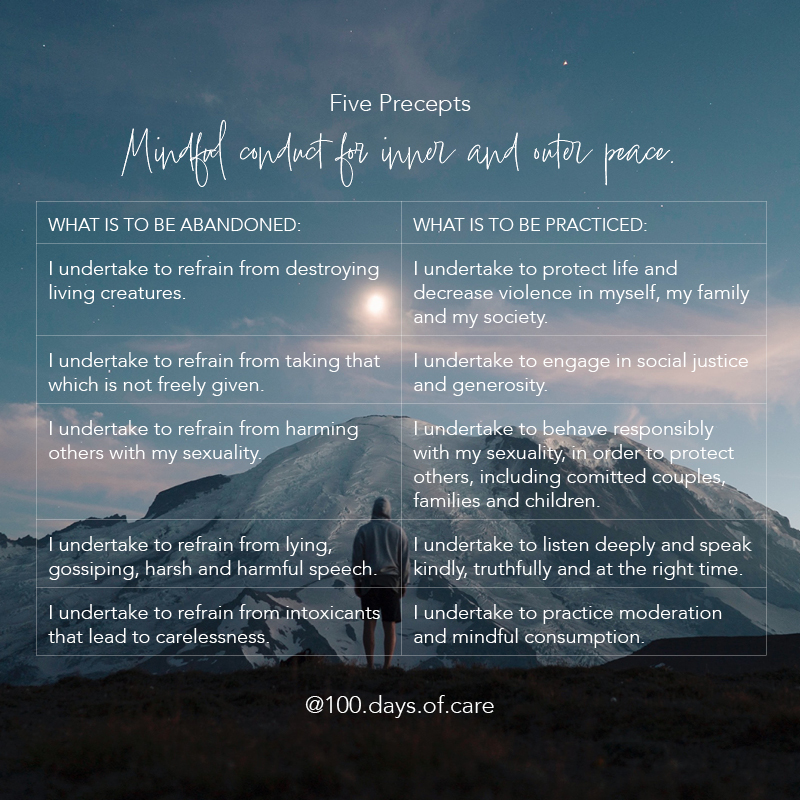From a Buddhist point of view, all beings are naturally good-hearted. When our mind is not clouded by confusion, craving or ill-will, we know innately what leads to distress and what leads to well-being.
The trick is to uncloud the mind.
Regular periods of meditation or quiet contemplation create a path to liberating or unclouding our mind, so that we get better at seeing clearly and undertaking actions (karma) that lead to our own and others’ well-being.
To walk this path is to cultivate virtue or ‘good conduct’ — thoughts, words and actions that are ‘conducive to goodness.’ Goodness, not just externally evaluated, but goodness as in feels good, is aligned, whole or wholesome.
The Five Precepts (below) are not to be understood as law or even obligation. They are more like training wheels the Buddha suggested we can rely on to guide our practice while our mind is still unbalanced and clouded.
As we begin to know our own heart-mind more clearly, we learn to rely directly on its resonance when acting and re-acting. The Perfection of Virtue (sila paramai), is the path fully integrated with wisdom, as we increasingly take only action that is peaceful and leads onward to peace.

| WHAT IS TO BE ABANDONED: | WHAT IS TO BE PRACTICED: |
| I undertake to refrain from destroying living creatures. | I undertake to protect life and decrease violence in myself, my family and my society. |
| I undertake to refrain from taking that which is not freely given. | I undertake to engage in social justice and generosity. |
| I undertake to refrain from harming others with my sexuality. | I undertake to behave responsibly with my sexuality, in order to protect others, including comitted couples, families and children. |
| I undertake to refrain from lying, gossiping, harsh and harmful speech. | I undertake to listen deeply and speak kindly, truthfully and at the right time. |
| I undertake to refrain from intoxicants that lead to carelessness. | I undertake to practice moderation and mindful consumption. |
